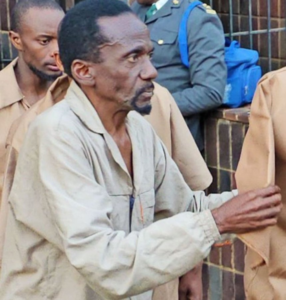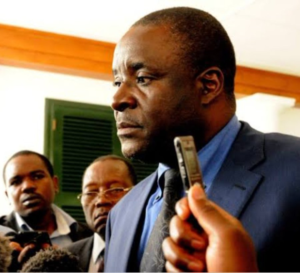JOB SIKHALA’S PLEA FOR A FREE ZIMBABWE AT THE UN GENEVA SUMMIT

In a heartfelt address at the 16th Geneva Summit for Human Rights and Democracy, Job Sikhala, a former opposition member of Parliament and a lawyer from Zimbabwe, shared his harrowing tale of political persecution. His speech, delivered on May 15, 2024, in Geneva, Switzerland, resonated with attendees from around the globe, highlighting the ongoing human rights abuses in his homeland.
Sikhala, known for his nearly three-decade-long political career, has been arrested 68 times, mostly found innocent thereafter. However, his latest arrest on June 14, 2022, marked a significant turn as he faced 595 days of pre-trial incarceration in solitary confinement at the notorious Chikurubi Maximum Security Prison, without bail. His “crime” was representing Moreblessing Ali, an opposition political activist whose brutal murder and mutilation shocked the community. Sikhala’s involvement in her legal case led to his prolonged detention, underscoring the Zimbabwean government’s use of the judicial system to suppress dissent.
Throughout his imprisonment, Sikhala endured severe hardships, including denial of basic rights such as food, medical care, and legal representation. His conditions were so dire that even when suffering from serious health issues, he was denied access to his chosen medical doctor and remained chained to his hospital bed. The government’s actions did not stop with Sikhala; they extended their repressive tactics to his family and associates. His wife was unjustly arrested, and his legal practice was dismantled, with his office looted and furniture scattered.
The address also shed light on the broader context of repression in Zimbabwe under President Mnangagwa’s regime. Sikhala’s story is not an isolated incident but a reflection of the systemic targeting of opposition members, activists, and any voices bold enough to challenge the status quo. He recounted the experiences of several other activists who have faced similar fates, including abductions, torture, and forced exile.
Despite these challenges, Sikhala’s spirit remains unbroken. His speech was not just a recount of his suffering but a call to action. He highlighted the importance of international solidarity and the role of global institutions in supporting those fighting for democracy and human rights. The formation of the National Democratic Working Group (NDWG) in Zimbabwe, which he chairs, is a testament to the resilience of the Zimbabwean people and their continued struggle for a democratic society.
Moreover, Sikhala emphasized the pressing humanitarian issues facing Zimbabwe, including a severe drought exacerbated by climate change, affecting millions across Southern Africa. He appealed to the international community for equitable food aid distribution, ensuring that aid is not used as a political weapon against the opposition.
The address at the Geneva Summit is a crucial reminder of the ongoing human rights crises in many parts of the world. Sikhala’s story is a poignant illustration of the personal costs of political activism in oppressive regimes. His concluding remarks, calling for unity against the persecution of human rights advocates globally, underscore the universal struggle for justice and freedom.
As the international community continues to grapple with these issues, the courage and resilience of individuals like Job Sikhala serve as both a beacon of hope and a call to action. The world must respond not only with words but with meaningful action to support those who fight for democratic freedoms and human dignity against all odds. Sikhala’s plea at the Geneva Summit is a powerful reminder that silence in the face of injustice only serves to empower the oppressors.





